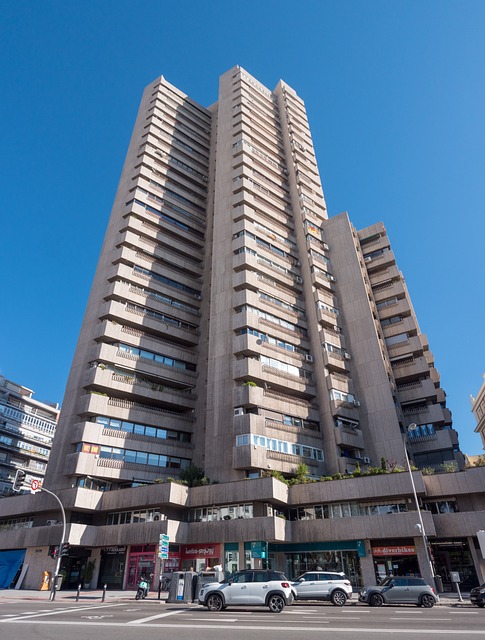Asbestos Removal Denver services are essential for addressing the health risks associated with asbestos, a hazardous mineral once commonly used in building materials. Exposure to asbestos fibers can cause severe lung diseases such as mesothelioma and lung cancer. Homes and buildings constructed before 1980 in Denver often contain asbestos in materials like insulation, floor and ceiling tiles, paint, and molding compounds. Professional assessment by Asbestos Removal Denver is crucial during renovations or demolitions to prevent the release of these fibers. Local regulations, enforced by both state and federal agencies including the Colorado Department of Public Health and Environment and the EPA, strictly govern asbestos handling, transport, and disposal to protect public health and the environment. Only licensed Asbestos Abatement Contractors in Denver are authorized to perform such removals, adhering to containment protocols, using personal protective equipment (PPE), and executing thorough cleanup measures. Homeowners and businesses must hire certified professionals from Asbestos Removal Denver for any asbestos-related construction or demolition to comply with legal obligations and ensure safety. The comprehensive approach of these services, including identification, removal, and cleaning, along with continuous air monitoring and clearance testing, is vital in maintaining a safe and healthy environment for Denver's residents and workers.
Denver residents face a silent threat within their homes: asbestos. Understanding its health risks and identifying it is crucial for ensuring a safe living environment. This article delves into the legal requirements for asbestos removal in Denver, Colorado, outlining the necessary steps to execute safe removal practices. It also provides insights on selecting trustworthy contractors for this specialized task and addresses post-removal considerations, including contamination and cleanup protocols. Ensuring compliance with local regulations and adhering to professional guidelines is key when dealing with asbestos in Denver homes.
- Understanding Asbestos: Health Risks and Identification in Denver Homes
- The Legal Framework for Asbestos Removal in Denver, Colorado
- Step-by-Step Guide to Safe Asbestos Removal Practices in Denver Residences
- Selecting a Reliable Asbestos Removal Contractor in the Denver Area
- Post-Removal: Dealing with Asbestos Contamination and Site Cleanup in Denver
Understanding Asbestos: Health Risks and Identification in Denver Homes

Asbestos, a group of naturally occurring fibrous minerals, poses significant health risks when disturbed and its fibers are released into the air. Historically used in building materials for its fire-resistant and insulating properties, exposure to these fibers can lead to serious respiratory diseases such as mesothelioma, lung cancer, and asbestosis. In Denver homes, particularly those built before 1980, asbestos can be found in a variety of locations: in insulation, floor tiles, ceiling materials, and even in some types of paint and molding compounds. It’s crucial for homeowners and professionals to identify these potential hazards to prevent the release of asbestos fibers during renovations, repairs, or demolitions. Asbestos Removal Denver services are equipped with the expertise and specialized equipment necessary to safely handle and dispose of asbestos-containing materials (ACMs). These professionals adhere to strict regulations and protocols to ensure the health and safety of occupants and the environment. Engaging Asbestos Removal Denver experts is essential for proper assessment and removal, safeguarding the well-being of both individuals and the community at large.
The Legal Framework for Asbestos Removal in Denver, Colorado

In Denver, Colorado, asbestos removal is governed by a comprehensive legal framework designed to protect public health and the environment. The Colorado Department of Public Health and Environment, along with the Environmental Protection Agency (EPA), sets forth regulations that dictate the safe handling, transportation, and disposal of asbestos-containing materials (ACMs). These regulations, in alignment with the federal Clean Air Act, require that all asbestos removal activities adhere to strict protocols to prevent the release of harmful asbestos fibers into the air. Asbestos Abatement Contractors in Denver must be licensed and follow specific procedures, including containment, use of personal protective equipment (PPE), and thorough cleanup processes. The City of Denver also has its own set of local ordinances that complement these federal guidelines, ensuring a dual layer of compliance for asbestos removal projects. Homeowners and businesses alike are advised to engage with certified professionals who specialize in Asbestos Removal Denver for any renovation or demolition work where asbestos is present. This legal framework is critical in safeguarding the health of residents and workers, and ensuring that Denver remains a safe city for all. Compliance with these regulations not only prevents exposure to asbestos but also mitigates potential liability under Colorado law, which holds accountable those who fail to adhere to proper asbestos removal practices.
Step-by-Step Guide to Safe Asbestos Removal Practices in Denver Residences

When dealing with asbestos in Denver residences, adhering to safe removal practices is paramount for the well-being of occupants and workers alike. The first step in the process is identification; locate and identify any materials containing asbestos within your home. This could include insulation, floor tiles, ceiling textures, or other building materials commonly used before 1980 when their use was banned due to health risks. It’s crucial to have these materials assessed by a professional asbestos inspection service in Denver to confirm their composition.
Once asbestos-containing materials are identified and confirmed, the next step is to engage with a licensed asbestos removal contractor in Asbestos Removal Denver. These professionals are trained to handle asbestos safely, ensuring compliance with local, state, and federal regulations. They will develop a containment strategy to isolate the area, protective measures for workers, and a plan to remove the material without contaminating the surrounding environment. Proper disposal of asbestos waste is also integral, as it must be sealed in specialized bags and disposed of at designated facilities. Throughout this process, the contractor will closely monitor air quality to ensure that asbestos fibers do not become airborne, posing a health risk. This meticulous approach to asbestos removal by Asbestos Removal Denver services ensures the safety of all involved and minimizes potential exposure.
Selecting a Reliable Asbestos Removal Contractor in the Denver Area

When confronted with asbestos concerns in homes or commercial buildings within the Denver area, selecting a reliable asbestos removal contractor is paramount for ensuring the safety and well-being of occupants and workers. The Best Asbestos Removal Denver services prioritize thorough assessments to identify asbestos-containing materials accurately. A trustworthy contractor brings expertise in adhering to stringent local regulations and employing state-of-the-art techniques to safely abate the hazardous material. It’s crucial to verify their certifications, experience, and licensing specific to asbestos removal in Colorado. Additionally, reviews and testimonials from previous clients can offer insight into a contractor’s reliability and effectiveness. Homeowners and businesses should look for contractors who demonstrate a commitment to not only removing the asbestos but also providing guidance on preventive measures and long-term management strategies post-remediation. The Best Asbestos Removal Denver contractors stand out by combining their technical proficiency with customer service excellence, ensuring a safe environment for all involved. Their knowledge of local environmental conditions and awareness of the latest safety protocols make them the go-to choice for asbestos abatement in the Mile High City and its surroundings.
Post-Removal: Dealing with Asbestos Contamination and Site Cleanup in Denver

When asbestos contamination is identified in Denver properties, the post-removal phase is critical to ensure the safety and health of occupants and the environment. Asbestos Removal Denver companies adhere to strict protocols to address this concern. After the careful and regulated removal of asbestos-containing materials, these firms implement thorough site cleanup measures. This process involves meticulous cleaning to eliminate all traces of asbestos fibers, which can be dangerous if inhaled. The use of specialized equipment and advanced techniques is essential to ensure that air quality is restored to safe levels. Air monitoring is conducted throughout the cleanup to confirm that the concentration of asbestos fibers is below acceptable limits. This rigorous approach by Asbestos Removal Denver professionals ensures that properties are safely decontaminated, allowing residents and businesses to return without risk. Post-removal clearance testing is also performed to validate that the site meets all environmental and safety standards, providing peace of mind and compliance with local regulations.
When addressing asbestos concerns in Denver, it’s imperative to follow established protocols for safe removal and remediation. The health risks associated with asbestos exposure are significant, necessitating professional intervention. Homeowners and contractors must stay informed about the legal standards governing asbestos abatement within the city. By adhering to these guidelines and employing specialized asbestos removal Denver services, residents can safeguard their homes and well-being effectively. Selecting a reputable contractor with expertise in this field is crucial for successful and compliant asbestos management. Post-removal measures ensure that contamination is adequately addressed, guaranteeing a safe environment for all Denver residents. Asbestos removal in Denver requires a concerted effort from both professionals and the public to maintain a healthy living space free from the dangers of asbestos.
